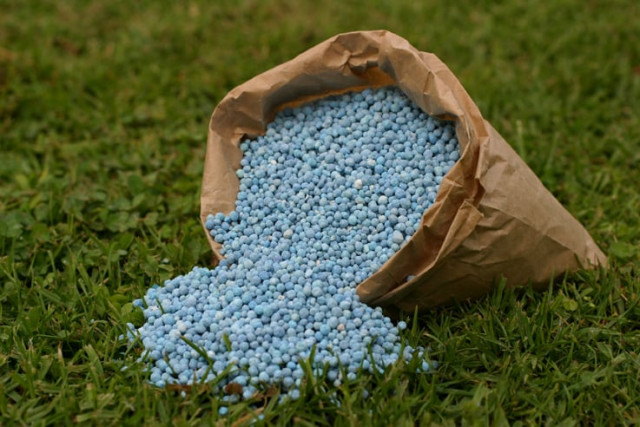Flawed govt policy affecting fertiliser sector: Industry
Fertiliser companies blame urea dealers for black market, say if provided gas, a urea bag can be produced at Rs1,300.

During a discussion with Agriculture Journalists Association, industry executives said that Pakistan has a potential to produce 6.9 million tons of urea annually, but the government would rather import it instead of ensuring gas supply to the sector to increase production.
The executives showed resentment for government policies, adding that they were made to appeal to the masses in rural areas, hence increase their vote bank.
“It seems that urea import is in line with the next election campaign, which the government is willing to contest at the cost of fertilizer sector of the country,” said Rasheed Lone, Chief Executive Officer of Dawood Hercules Fertilizers.
“Government is now planning to import another shipment of urea despite of the available 4 lac m/tons of imported urea of worth $783 million, and had to give a subsidy over Rs 54 billion on this,” Lone said.
Lone said that the local fertilizer manufacturing plants had been forced to shut down for over six months in 2011, causing a shortage and a subsequent price hike of 141 per cent in just 2 years. The ill-conceived gas load management plan, he said, has badly hampered manufacturing of urea and hence dealt a severe blow to the agriculture sector, which was the backbone of the economy.
“We are capable enough to meet the country’s urea demand, if we are provided with the agreed quantity of gas, then we will provide urea priced at Rs 1300 per bag,” the CEO said.
Talking about the demand-supply gap and price fluctuation, Ahmad Jaudet Bilal, CEO Agritech said that the urea dealers were behind the black market, which could not be controlled, once the consignment was handed to them.
“There are 6000 dealers all over Pakistan and no one control them, not even the government. We can only request them to stop this practice, but anyone who invests, should earn some handsome margin.”
Bilal added that other industries and consumers were being supplied gas, when they could be provided with alternative sources of energy. Gas supply, which is vital for the fertiliser sector, has been curtailed since November.
Highlighting the advantages of fertilizer, Bilal said it was beneficial for a good output of crops; has a direct impact on the economy, food security, cotton production and ultimately supplementing textile exports.
“Besides production of wheat, it also plays a role in producing the feed for millions of livestock in the country,” Bilal added.
He said that within 2 years, Urea prices increased by 141% to Rs. 1810/bag from Rs. 750/bag in Dec 2009. Government, he said has imposed two different taxes, includes 16% GST and Gas Infrastructure Development Cess of 193%. Combined impact of both in current price is Rs. 384/bag, Cess impact on Urea manufacturers is Rs. 258/bag without GST, however, Industry passed on 50% of this impact to the farmers, he said. But the major price increase impact of Rs. 537 per bag was due to severe Gas Curtailment, he added.
"Despite Industry made an investment of US$ 2.3 Billion in last three years, on upgrading capacity, the country is sitting on an idle urea capacity of 2 million tons while urea is being imported spending precious foreign exchange," Bilal said.
Farmers are the real losers in this scenario where due to massive gas curtailments and ill planning in gas distribution, farmers had to face a loss of Rs. 127 billion on increased Urea price in two years, he said.



















COMMENTS
Comments are moderated and generally will be posted if they are on-topic and not abusive.
For more information, please see our Comments FAQ